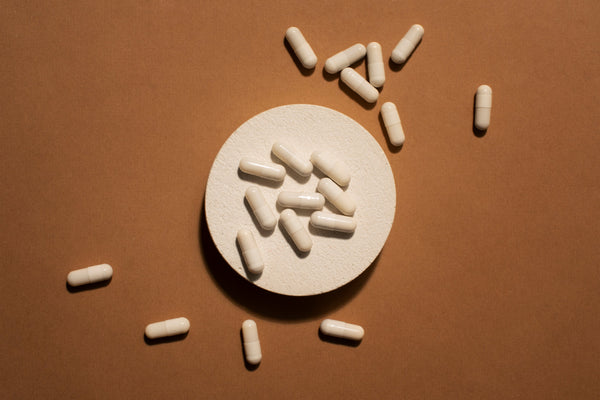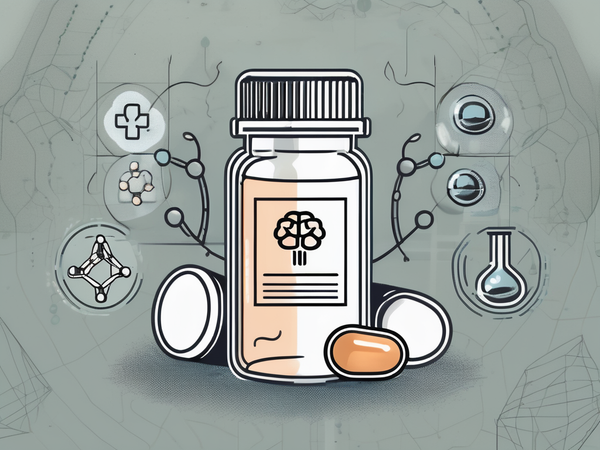When it comes to a healthy body and mind, sleep plays as much of a role as diet and exercise do. But in a world where people are always pressed for time, sleep is the first thing that gets affected. People often consider a good night’s sleep a luxury and feel almost guilty for sleeping for long hours and getting adequate rest. But what is the importance of sleep and how does it benefit your health? Read on to find out how.
Importance of Sleep
One of the healthy habits that you can imbibe is to have a sound sleep every day. According to research, adults must get sleep somewhere between 7 and 9 hours every night, while babies and teens need more sleep for their healthy growth and development. While it may be difficult for people to get that many hours of sleep, they can at least make an effort to do so regularly as it has a number of benefits such as improved mental alertness and concentration, better productivity, lower risk of weight gain, cardiovascular diseases and inflammations, bolstered immunity, reduced mood swings, among other things. Let’s look at some of these benefits in detail below, which will help us understand the importance of sleep in detail.
Sleep Benefits
The following benefits will help you better understand the importance of sleep.
Lower chances of weight gain
If you wish to lose weight, then apart from eating healthy and exercising regularly, you need to get a sound and undisturbed sleep daily. Research suggests a strong link between poor sleep quality and weight gain. Absence of sleep and sufficient rest can adversely affect the hormones and one’s inclination to exercise, which could make losing weight difficult.

Increased mental alertness and productivity
Sleep deprivation can adversely affect one’s mental alertness, mood, cognition, focus, and overall productivity. Sleep deprivation causes a constant state of tiredness and mental fatigue, which inevitably impacts one’s job performance. With no rest, the neurons in the brain get overworked, which diminishes one’s ability to think clearly and concentrate, slowing their physical reactions and leaving them in a state of emotional void.
Lower risk of cardiovascular ailments
There is a direct connection between sleep and heart diseases. If you aren't getting a sufficient amount of sleep, your risk of getting cardiovascular diseases is higher. The blood pressure tends to go down while sleeping, giving the heart and blood vessels some rest. If you tend to get less sleep, the longer your blood pressure is likely to stay up during the day. Now imagine what will happen, if you don’t get enough sleep over a long period of time. High blood pressure in the long run can lead to heart related ailments, including stroke. Besides poor sleep invariably leads to unhealthy habits such as a bigger appetite, no inclination to work out, hormonal imbalances, weight gain- all of which impact the heart.

Lower cases of depression and other mental health problems
Poor quality of sleep majorly impacts a person’s mood. Depression is one such mood disorder. Although it is perfectly normal for a person to feel down or sad once in a while, things take a turn for the worse when these periods of sadness become intense, indicating a much serious mental health problem known as depression. Insufficient sleep causes depression and vice versa. It is a vicious loop that can seriously impact one’s overall health in due course of time if proper measures aren’t undertaken to break it. Research shows that people with insomnia and other sleep disorders have higher episodes of depression than those who don’t. When you sleep your brain is able to get the well-deserved rest it needs to be able to process emotions properly and efficiently. When you tend to sleep less, your brain is not able to do so properly, causing you to have mood swings, and more negative reactions than positive ones. It thus affects emotions and social interactions.
Improved immunity
A strong immune system protects you from all kinds of infectious diseases. To stay healthy, it is very important to have a strong immune system and sleep plays a vital role in doing that. Both the quality and duration of sleep matters here. There is sufficient research available that proves long hours of high quality sleep results in a well-balanced immune defense, lesser propensity to catch infections and allergic reactions and better response and coping mechanism to vaccinations.

No inflammation in the body
Inflammations in the body means higher the risk of chronic diseases like heart ailments, diabetes and even cancer. In fact, it is the root cause of several autoimmune diseases. A sleeping disorder signifies a higher chance of getting inflammations in the body as well as cellular damage. Research shows that during deep sleep cycles, the body regains its circadian rhythm, which plays an instrumental role in its overall effective functioning, which also includes reducing inflammation.

Reduces chances of diabetes
Good quality sleep for 7-8 hours a day also improves metabolism and reduces insulin sensitivity, thereby managing the blood sugar levels. Researchers are of the opinion that sleep deprivation can affect one’s blood sugar levels as it can adversely impact one’s insulin, cortisol and oxidative stress levels - all of which are factors that contribute to Type 2 diabetes.
The aforementioned points all help us understand the importance of sleep and its role in our overall health and well being. While bringing about positive lifestyle changes such as exercising regularly, limiting screen time before hitting the bed, following a healthy diet, managing stress, and limiting caffeine intake are some of the ways in which you can improve your sleep quality, you can also try out Wellbeing Nutrition’s Restful Sleep Melts.
It has been formulated to aid the natural process of the body to fall asleep and contains plant-based melatonin, which consists of Asian rice, Alfalfa, the leaves and roots of Chlorella Pyrenoidosa, along with other important nutrients like chamomile, l-theanine, passion flower, valerian root, and vitamin B-6, to support the body in being more receptive to melatonin, the sleep hormone.
References:
- Healthy Lifestyle- Adult Health, (https://www.mayoclinic.org/healthy-lifestyle/adult-health/expert-answers/how-many-hours-of-sleep-are-enough/faq-20057898)
- Beccuti G, Pannain S. Sleep and obesity. Curr Opin Clin Nutr Metab Care. 2011;14(4):402-412. doi:10.1097/MCO.0b013e3283479109. (https://www.ncbi.nlm.nih.gov/pmc/articles/PMC3632337/)
- Ricci JA, Chee E, Lorandeau AL, Berger J. Fatigue in the U.S. workforce: prevalence and implications for lost productive work time. J Occup Environ Med. 2007 Jan;49(1):1-10. doi: 10.1097/01.jom.0000249782.60321.2a. PMID: 17215708. (https://pubmed.ncbi.nlm.nih.gov/17215708/)
- Sleep Duration Linked to Cardiovascular Disease, Bridget M. Kuehn
Originally published 20 May 2019, https://doi.org/10.1161/CIRCULATIONAHA.119.041278Circulation. 2019;139:2483–2484. (https://www.ahajournals.org/doi/10.1161/CIRCULATIONAHA.119.041278) - Hayley AC, Williams LJ, Venugopal K, Kennedy GA, Berk M, Pasco JA. The relationships between insomnia, sleep apnoea and depression: findings from the American National Health and Nutrition Examination Survey, 2005-2008. Aust N Z J Psychiatry. 2015 Feb;49(2):156-70. doi: 10.1177/0004867414546700. Epub 2014 Aug 15. PMID: 25128225. (https://pubmed.ncbi.nlm.nih.gov/25128225/)
- How Sleep Affects Immunity, Sleep Foundation. (https://www.sleepfoundation.org/physical-health/how-sleep-affects-immunity#:~:text=Sleep%20provides%20essential%20support%20to,and%20less%20severe%20allergic%20reactions.)
- Mullington JM, Simpson NS, Meier-Ewert HK, Haack M. Sleep loss and inflammation. Best Pract Res Clin Endocrinol Metab. 2010;24(5):775-784. doi:10.1016/j.beem.2010.08.014. (https://www.ncbi.nlm.nih.gov/pmc/articles/PMC3548567/)
- Gottlieb DJ, Punjabi NM, Newman AB, Resnick HE, Redline S, Baldwin CM, Nieto FJ. Association of sleep time with diabetes mellitus and impaired glucose tolerance. Arch Intern Med. 2005 Apr 25;165(8):863-7. doi: 10.1001/archinte.165.8.863. PMID: 15851636. (https://pubmed.ncbi.nlm.nih.gov/15851636/)




























